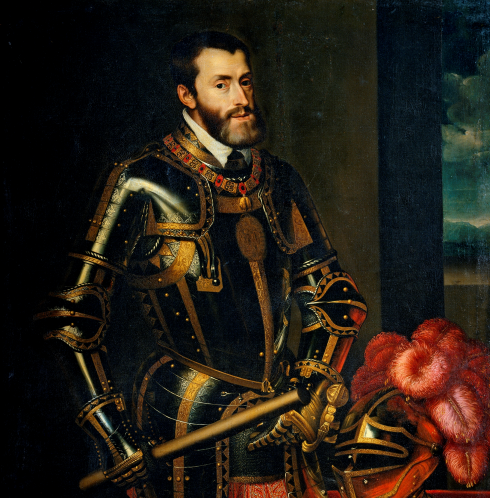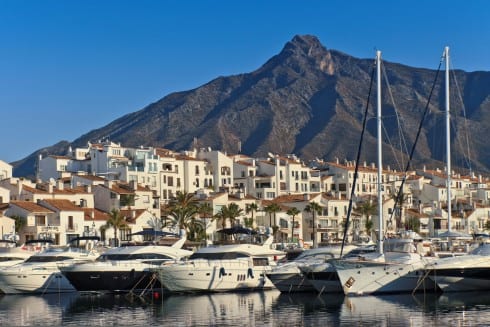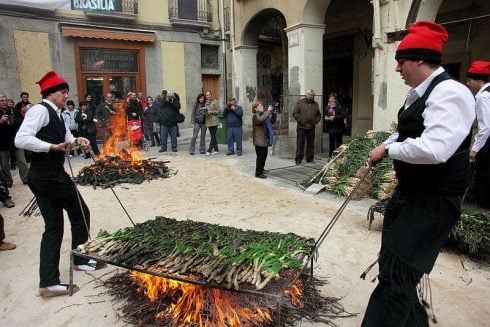SPANISH wine culture dates back 3,000 years to the Phoenicians. But what about that other fermented delight – namely beer? Although not as consistent in its popularity as wine, the erratic and unpredictable popularity of Spanish beer has a colourful story to tell.
The Roman Republic’s conquest of Hispania (approx:218 B.C.) was not seamless. The native Celtiberian tribes – a loose alliance of ancient Celtic tribes – were strongly opposed to relinquishing control of Hispanic lands to Rome.
Known as the Celtiberians Wars (181-151 BC), the native populations were so fiercely combative that Rome was forced to send large armies to quell the unrest.

In one battle at Numantia (Castilla y Leon), the warlike tenacity of the beer drinking natives led the Romans to reconsider their strategy. Numantian women, as part of their daily routine of baking bread, would often liquify the wheat, barley and hops left over from their bread making process. Left to ferment this ‘liquid bread’ (read: beer) was an extremely powerful intoxicant. So potent in fact, that before every battle the Numantians would increase their morale and courage by getting wildly drunk on the liquid bread.
The Romans soon learned to fear them as ‘crazed, fierce, demonic fighters’.
The ferocity of the native beer guzzlers successfully held off the invaders until the Romans had suffered enough losses to stop fighting. Instead, they reverted to building a wall, a moat and impaling rods around the settlement as part of laying siege.
For two years the Numantians refused to surrender but as famine and suicide took their toll, the natives burned their city to the ground rather then become Roman slaves.
In the centuries to follow, the victorious Romans replaced the beer-drinking culture with one built around wine.
However, when Charles V became King of Spain (1516) he began to change the culture. Although grandson of Ferdinand and Isabella, Charles was born Dutch and had inherited his crown via complicated Hapsburg marriage arrangements.
King Charles and his court imported their strong Northern European taste for beer to Spain. He hired Flemish, German and Alsatian brew masters and began Spain’s first beer factory along the Manzanares River in Madrid.

Charles established rules and regulations as they applied to beer manufacture: the amount of wheat, barley and hops, the alcohol content, and fermentation time. If anything was changed, the brewers would suffer a penalty.
Charles, his entourage and his beer were wildly unpopular – the public didn’t like him or his beer and rejected both. Wine remained the public’s libation of choice for the next few centuries.
Only in the beginning of the 20th Century did a beer drinking preference begin to gain enough popularity for large breweries to open.
Mahou and El Aguila Beer opened Madrid in 1900. Cruzcampo started brewing in 1904 in Sevilla, Estrella in Barcelona in 1906, while Alambra began in Granada in 1925.
By the 1960s with Spain’s boom in tourism, beer became the common drink in bars it is today. The ‘beer linked with tapas’ craze took off in thousands of tabernas throughout the peninsula. The splendid golden liquid has since far surpassed wine as the libation of choice.
Spaniards now drink twice as much beer by volume than wine. Granted, Spain will always be famous for its amazing wines, but cerveza inarguably has taken on an important part of Spanish day to day life.
As for the ‘Beer Today—gone tomorrow’ troupe? A definite yes to the former and not likely to the latter…
Did You Know?
- In March,2021 the Heineken España, brewery in Jaen, creator of Cruzcampo, Alazar and Amstel beers, became the first AND largest brewery in Europe to be completely emissions free. With solar panels and heat energy generated by waste from the nearby olive oil industry, they have eliminated 2,500 tonnes of carbon emissions.
- The expression ‘Numantian resistance’ has become a Spanish proverb used to imply a strident, single minded resistance to authority. Many Spanish authors, including Cervantes, find meaning in Numantia similar to that of the Masada for Israelis.
- “Cerveza Artesana “or craft beer” is rapidly becoming part of the discussion of beer in Spain. In less than a decade there have been 400 new producers introducing 650 varieties of craft beer throughout Spain. Openly countering Charles V’s demand for strict regulations, craft beer brewers creatively experiment with flavors (e.g. coffee, citrus, honey) to the delight of many. Could Cerveza Artesana be posed to be the next exciting chapter in the history of Spanish beer?
READ MORE:
- Jack Gaioni explores the horrors of a Civil War concentration camp and Franco’s grip on the Spanish press
- Meet the last shepherds eeking out a living on Spain’s ancient pastoral routes
- Wind of change: Two sides of the ecologist movement clash as Spain debates renewable energy











